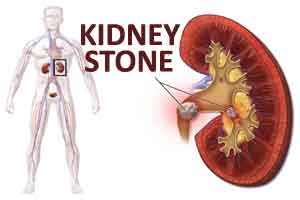- Home
- Editorial
- News
- Practice Guidelines
- Anesthesiology Guidelines
- Cancer Guidelines
- Cardiac Sciences Guidelines
- Critical Care Guidelines
- Dentistry Guidelines
- Dermatology Guidelines
- Diabetes and Endo Guidelines
- Diagnostics Guidelines
- ENT Guidelines
- Featured Practice Guidelines
- Gastroenterology Guidelines
- Geriatrics Guidelines
- Medicine Guidelines
- Nephrology Guidelines
- Neurosciences Guidelines
- Obs and Gynae Guidelines
- Ophthalmology Guidelines
- Orthopaedics Guidelines
- Paediatrics Guidelines
- Psychiatry Guidelines
- Pulmonology Guidelines
- Radiology Guidelines
- Surgery Guidelines
- Urology Guidelines
New ultrasound technology to reposition kidney stones for quick pain relief

A completely new, painless, non-invasive treatment that uses ultrasound technology to reposition kidney stones, which will provide quick relief to the sufferer, will undergo screening in emergency patients.
The University of Washington and UW Medicine, in collaboration with other universities and agencies, has laid down the development and assessment of the new technology. The new technology is likely to benefit both astronauts as well as patients residing on earth.
An ultrasound device can better detect kidney stones and this intervention has led to the observation by the engineers that they could accurately reposition small objects with ultrasound on a laboratory table. The researchers moved a step ahead with the technology and used the same waves from a hand-held ultrasound transducer to re-locate kidney stones in preliminary tests.
Currently, SonoMotion is working to develop a commercial device for the same purposes of non-invasive kidney stone repositioning.
“For this trial, we will be trying to reposition obstructing stones for our emergency department patients," said Dr. M. Kennedy Hall, assistant professor of emergency medicine. “Their clinical research team will test a protocol that might be carried out safely and effectively during a space mission by on-board medical responders,” he added.
Read Also: Five classes of antibiotics That increase risk of kidney stones
"Our hope is that we will be able to move stones back into patients' kidneys." Hall said, "This could make our patients more comfortable and allow them to deal with the kidney stone on their terms, not on the stone's terms. An additional benefit of repositioning kidney stones is potentially avoiding unnecessary pain medications such as opioids for patients discharged from their kidney stone emergency."
Kidney stones when entering the urinary tract are not able to pass through it and gets stuck and can cause debilitating pain. In addition, obstruction of urine flow intensifies the problem. This can result in swelling of the kidney, and cramp in the ureter causing more damage to the kidney.
Michael Bailey, an ultrasound researcher at the UW Applied Physics Laboratory and one of the project leaders, emphasized, "This technology could give patients on Earth the ability to immediately return to normal life (in contrast to surgical treatments or continued, painful attempts to passing the stone). For astronauts in space, this option could save a life and allow astronauts to complete urgent mission responsibilities without having to turn the space shuttle around - a significant consideration."
Bailey quoted a past incident where a Russian cosmonaut who experienced a blocking kidney stone while in space and was preparing for emergency re-entry when it appeared that his stone finally passed.
The current ultrasound kidney stone push technology named flexible ultrasound system, or FUS is about the size of a lecture podium on wheels. It has a built-in imaging screen and a hand-operated device for delivering the waves through the surface of the body.
NASA would probably plan to fly the ultrasound system in future missions, including longer duration human explorations of Mars if trials on Earth are successful.

Disclaimer: This site is primarily intended for healthcare professionals. Any content/information on this website does not replace the advice of medical and/or health professionals and should not be construed as medical/diagnostic advice/endorsement or prescription. Use of this site is subject to our terms of use, privacy policy, advertisement policy. © 2020 Minerva Medical Treatment Pvt Ltd